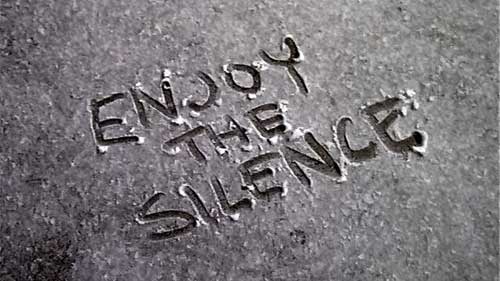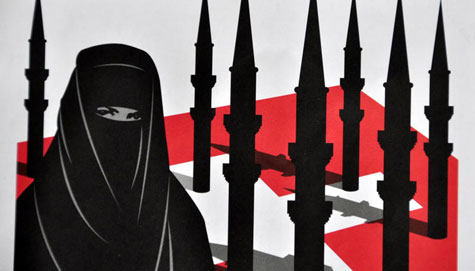Category: book reviews / recommendations

Some years ago, Rick Simonson of Elliott Bay Book Company recommended three books I could take with me to keep me company while I was on a promotional tour for Hope and Other Dangerous Pursuits. I bought the books, put them in my suitcase, and then of course read something else entirely. It wasn’t until last week that I pulled the three books that make up Eduardo Galeano’s Memory of Fire from my shelves. This is brilliant, brilliant work. In brief, poetic vignettes, Galeano tells the history of the Americas from ancient times to the present. It seems impossible, doesn’t it, telling the history of an entire continent in just three books? But he does it so well and so sensitively. For each year, he selects one or two events and turns them into a little story, sometimes as short as a paragraph, sometimes as long as two or three pages, but always taking the time to bring characters into relief. I brought the books with me to Marfa, Texas, where I am on residency to work on my new novel.
(Photo credit: Marfa courthouse via West Texas Weekly.)
My review of Katherine Boo’s amazing book, Behind the Beautiful Forevers: Life, Death, and Hope in a Mumbai Undercity, appears in the latest issue of The Nation. Here is an excerpt:
During the year I spent in Casablanca, I noticed that slums were discussed in the press almost exclusively with the vocabulary of pathology. The karian were “dangerous.” They were places that “tainted” the city and had to be “eradicated.” One journalist called them “a gangrene”; another urged a “hunt for the slums.” The language became even more antagonistic after a failed terrorist attack in March 2007, when it was revealed that one of the suicide bombers, like those who had attacked the city four years earlier, had come from the slum of Sidi Moumen. I remember vividly a television reporter shoving a microphone in a woman’s face in Sidi Moumen and demanding to know why “your” youths did what they did.
I tell you all this because I want to explain why Katherine Boo’s first book, Behind the Beautiful Forevers, struck me with the force of a revelation. Unlike other reporters, who come to the slums in brief and harried visits, only when they have news to report or statistics to illustrate, Boo, a staff writer at The New Yorker, has chosen to chronicle the lives of slum-dwellers in the Indian city of Mumbai by spending more than three years with them, patiently listening to them talk about their aspirations, their struggles and their dilemmas.
Here is one dilemma, all the more disturbing for its banality. Fatima Sheikh, a crippled woman, lies on a bed in Burn Ward Number 10 at Cooper Hospital in Mumbai, an IV bag and a used syringe sticking to her skin. Abdul Hakim Husain, the teenager who is accused of pouring kerosene over Fatima’s body and setting it alight, is in the custody of officers from the Sahar Police Station. After assessing the situation, Asha Waghekar, a part-time schoolteacher and full-time fixer, makes what she deems a very fair offer: Abdul Hakim’s parents can pay her 1,000 rupees and she will persuade Fatima to drop the charges.
You can read the full review here, and you can subscribe to The Nation here.
In my last blog post, I talked about how I’ve been having a hard time with my new novel. I don’t like to complain about my novel–really, who needs more whining from a writer? But that week had been particularly brutal. Now, though, I’ve heard some lovely news, and I thought I’d share that with you too. I’ve been awarded a Lannan Residency Fellowship by the Lannan Foundation for next fall. What this means is that I will finally have that most precious of things: uninterrupted time to work on my book. The fellowship really could not have come at a better moment, so thank you to whoever nominated me for this!
I neglected to mention that, last month, the Guardian asked a few writers, including me, to reflect on the uprisings in the Arab world, one year later. And I also have an essay about Percival Everett’s new novel in this week’s Nation. (The article is only available to subscribers, but you can subscribe to the magazine here, for as little as $10.)
One last thing. Over the last few weeks, I’ve had to contend with several hacking attacks on my website. (As if I didn’t have enough craziness in my life.) So I’ve had to do a few upgrades to security, and I got myself a new design as well, thanks to the brilliant people at Being Wicked. If you’re looking for great web designers, hire them. They’re amazing.

I haven’t posted much on the blog lately, mostly because the last few weeks have been extraordinarily busy. I wrote about press freedoms for Newsweek, music festivals in Morocco for Foreign Policy, and the enduring mythology of Tangier for Time. I also reviewed Leila Ahmed’s new book, A Quiet Revolution, for the Los Angeles Times. And in between writing all of this, I went on holiday for a week. But things should be settling down now. (I hope.)

At about this time last year, I decided that I wouldn’t send out any stories or essays and that I would turn down requests for contributions to magazines or anthologies. A vow of public silence, you could call it. I wanted to spend all of 2010 doing two things only: reading and writing. So, whenever I wasn’t teaching or traveling, that’s precisely what I did. I read and I wrote. It wasn’t always easy, especially at the beginning. It was difficult to resist the temptation to write a review of a book I particularly enjoyed or an opinion piece about the latest political outrage. (Oh, sure, I had short pieces coming out here or there, but these were written before my resolution.) And now it’s been a year, and I realize this was one of the best things I could have done for myself. I feel as if I’m still under the spell of that working silence, so that I hesitate even to tell you about the novel I’ve written or the essays I’ve completed. But all in good time.
This review I wrote for The Nation is the first one I’ve written in a year. (It occurs to me that my last piece was also for them, from last November.) It’s about the Moroccan writer and critic Abdelfattah Kilito, who has recently released a collection of short fiction with New Directions, in a translation by Robyn Creswell. Here is how it opens:
On Idriss al-Azhar Street in downtown Rabat, not far from the Muhammad V Mausoleum, there is an unassuming but wonderful little coffee shop, the Café Jacaranda, where book readings are held and young artists’ paintings exhibited. There, on a warm spring afternoon three years ago, I went to hear two of Morocco’s foremost intellectuals discuss the feminine and masculine in classical Arabic literature. One was Fatema Mernissi, the world-renowned feminist, sociologist, and memoirist, the author of some twenty books on feminism and Islam, and co-winner, along with Susan Sontag, of the Prince of Asturias Award. Her arrival at the café was met with murmurs of awe. A throng of admirers immediately surrounded her, so that the only part of her that remained visible from the other end of the lobby was her fiery red hair.
The arrival of the other panelist, Abdelfattah Kilito, went unnoticed until it was time for the event to start. Where Mernissi was gregarious and funny, Kilito was reserved and bookish. Once the panel discussion started, however, the audience got to hear Kilito speak knowledgeably about Maqamat al-Hariri, the classical work of rhymed prose that until the end of the nineteenth century was one of the most widely read books of Arabic literature. Kilito spoke about the use of the sun and the moon as symbols for the masculine and feminine, the popularity of the Maqamat, the miniatures that the artist al-Wasiti created to illustrate the manuscript, the reasons why these miniatures are nowadays more widely disseminated than the text itself—and much else besides.
Among Moroccan writers, Kilito has always cut an unusual figure. He is equally at home in French and Arabic, in a country where language lines are drawn early and barriers are rarely crossed. He is not particularly known for his politics, in a society that routinely expects—and occasionally even demands—of its writers that they be politically engaged. His is not the name you will see mixed up in the kind of controversy that attracts the international press. But one would be hard-pressed to find a Moroccan writer who is more respected by his peers and more appreciated by his readers than Abdelfattah Kilito.
The full piece is available to subscribers only. (You can subscribe to the magazine here, for as little as $18.)
(Image credit: Wickednox)

I have a new essay in December 14th issue of The Nation magazine, which just went up online. It’s about the spate of books that claim that Europe is headed to its demise because of its rising Muslim population, with a particular focus on the most recent exemplar, Christopher Caldwell’s Reflections on the Revolution in Europe: Immigration, Islam and the West. Here is how it begins:
At a literary festival in New York City some years ago, I was introduced to a French writer who, almost immediately after we shook hands, asked me where I was from. When the answer was “Morocco,” he put down his drink and stared at me with anthropological curiosity. We spoke about literature, of course, and discovered a common love for the work of the South African writer J.M. Coetzee, but before long the conversation had turned to Moroccan writers, then to Moroccan writers in France, and then, as I expected it eventually would, to Moroccan immigrants in France–at which point the French writer declared, “If they were all like you, there wouldn’t be a problem.”
His tone suggested he was paying me some sort of compliment, though I found it odd that he would want the 1 million Moroccans in his country to be carbon copies of someone he had barely met and whose views on immigration–had he asked about them–he might not have found quite to his liking. It was only later, when I had returned to my hotel room, that it dawned on me that the profile of the unproblematic Moroccan immigrant he might have had in mind was based solely on conspicuous things. Some of these, like skin color, were purely accidental; others, like sartorial choices or dietary practices, were in my opinion inessential, but from his vantage point perhaps they suggested a smaller degree of “Muslimness.”
Was this man really suggesting that I was a more desirable immigrant because I did not look Muslim? We had started our conversation as two equals, two potential friends, two writers discussing literature, but we had ended it as judge and supplicant–the former telling the latter whether or not she would make a suitable immigrant. And why on earth did I not say something on the spot? Why did I not ask him what he meant? Instead, I had stared back at him with what I imagine was dumbfounded perplexity, and then changed the subject. Perhaps if I had confronted him I would have been able to remove the sting of the insult that had lain hidden inside the compliment.
You can read the essay, in full, here. The picture above is from an election poster by the Swiss People’s Party, which recently led a campaign to ban the construction of minarets in Switzerland. In a referendum held yesterday, the Swiss people approved the proposed law. It is now set to become part of the Swiss constitution.



